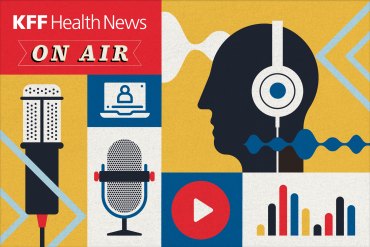How America Lost Control of the Bird Flu, Setting the Stage for Another Pandemic
Exclusive reporting reveals how the United States lost track of a virus that could cause the next pandemic. Problems like the sluggish pace of federal action, deference to industry, and neglect for the safety of low-wage workers put the country at risk of another health emergency.
Obamacare Sign-Ups Lag After Trump Election, Legal Challenges
The number of new and returning enrollees using healthcare.gov — the federal marketplace that serves 31 states — is well below last year’s as of early December. Also, a Biden administration push to give “Dreamers” access to Obamacare coverage and subsidies is facing court challenges.
How a Duty To Spend Wisely on Worker Benefits Could Loosen PBMs’ Grip on Drug Prices
As criticism of pharmacy benefit managers heats up, fear of lawsuits is driving some big employers to drop the “Big Three” PBMs — or force them to change.
How Are States Spending Opioid Settlement Cash? We Built a Database of Answers
From addiction treatment to toy robot ambulances, we uncovered how billions in opioid settlement funds were used by state and local governments in 2022 and 2023. Find out where the money went.
Federal Judge Halts Dreamers’ Brand-New Access to ACA Enrollment in 19 States
A federal judge sided with 19 states seeking an injunction against a Biden administration rule allowing recipients of Deferred Action for Childhood Arrivals to enroll in Affordable Care Act coverage and qualify for subsidies amid the annual open enrollment period.
Georgia’s Work Requirement Slows Processing of Applications for Medicaid, Food Stamps
Georgia’s ability to process applications for Medicaid and other public benefits has lagged since the launch of Republican Gov. Brian Kemp’s “Pathways” Medicaid work requirement, leaving Georgia with persistently slow Medicaid application processing times.
Nursing Homes Fell Behind on Vaccinating Patients for Covid
Last winter, only 4 in 10 nursing home residents got an updated covid vaccine. The low uptake leaves a fragile population vulnerable. Some industry watchdogs say it could be a sign of eroding trust between nursing home residents and providers.
9 States Poised To End Coverage for Millions if Trump Cuts Medicaid Funding
About 3.7 million people are at immediate risk of losing health coverage should the federal government cut funding for Medicaid expansions, as some allies of President-elect Donald Trump have proposed. Coverage could be at risk in the 40 states that have expanded Medicaid.
With Trump on the Way, Advocates Look to States To Pick Up Medical Debt Fight
Patient and consumer advocates fear a new Trump administration will scale back federal efforts to expand financial protections for patients and shield them from debt.
Nursing Home Industry Wants Trump To Rescind Staffing Mandate
A Biden administration rule that imposed minimum rules on nursing levels may not survive, even though many homes lack enough workers to maintain residents’ care.
A Toddler Got a Nasal Swab Test but Left Before Seeing a Doctor. The Bill Was $445.
A mom in Peoria, Illinois, took her 3-year-old to the ER one evening last December. While they were waiting to be seen, the toddler seemed better, so they left without seeing a doctor. Then the bill came.
Indiana Hospitals Pull Merger Application After Pushback Over Monopoly Concerns
Two Indiana hospital rivals withdrew their application to merge after facing pushback from the Federal Trade Commission and the public.
Journalists Reflect on Trump Picks, Racism and Public Health, and Unnecessary Dental Implants
KFF Health News staff made the rounds on national and local media in the last two weeks to discuss topical stories. Here’s a collection of their appearances.
After Institutions for People With Disabilities Close, Graves Are at Risk of Being Forgotten
Thousands of people with disabilities lived and died in state institutions. Now, decades after the facilities began closing, the cemeteries left behind are at risk of falling into disrepair.
FTC, Indiana Residents Pressure State To Block Hospital Merger
Hundreds of people and the Federal Trade Commission weighed in on a proposed hospital merger in Terre Haute, Indiana, with most arguing that the creation of a monopoly would increase costs and worsen patient care.
Idaho Calls Abortion ‘Barbaric and Gruesome’ in Trial Challenging Strict Ban
Women with serious pregnancy complications who were denied abortion care have turned to state courts after appeals to state lawmakers to clarify medical exceptions have largely failed.
After Congress Ended Extra Cash Aid for Families, Communities Tackle Child Poverty Alone
The child tax credit passed by Congress at the height of covid has expired, but states and localities are trying to fill the gap with their own programs and funding. In Michigan, Rx Kids already covers every family with a new baby in Flint. Now, other communities aim to follow.
Tribal Leaders Ask Feds To Declare Syphilis Outbreak a Public Health Emergency
For Native American communities in the Great Plains, data paints a clear picture of the devastation caused by an ongoing syphilis outbreak. According to the South Dakota Department of Health, 649 cases of syphilis have been documented this year. Of those, 546 were diagnosed among Native Americans, who make up only 9 percent of the […]
Older Americans Living Alone Often Rely on Neighbors or Others Willing To Help
Diverse networks of friends, former co-workers, neighbors, and extended family are often essential sources of support for older adults living alone. Often it is the elderly caring for the elderly.
7 of 10 States Backed Abortion Rights, but Don’t Expect Change Overnight
Voters backed abortion rights in seven of the 10 states where the issue appeared on ballots Tuesday, including in Missouri, among the first states to ban abortion after the U.S. Supreme Court overturned federal abortion protections with its 2022 decision in Dobbs v. Jackson Women’s Health Organization. At first glance, the nation’s patchwork of abortion […]


























